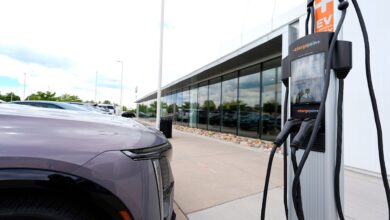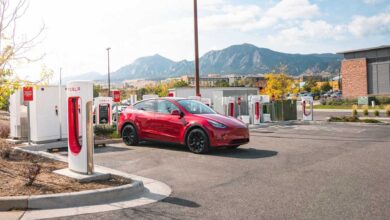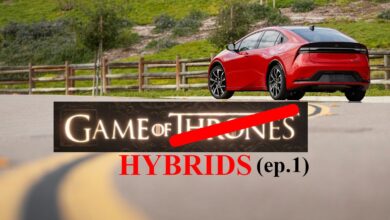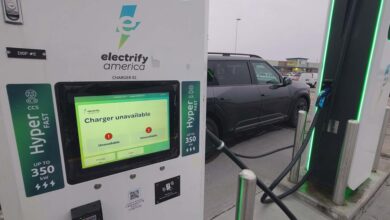Volvo shifts EV lines to EU from China
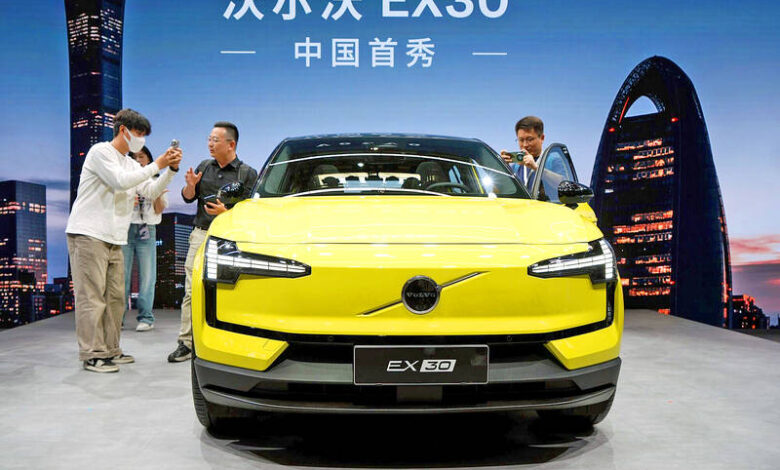
DISAGREEMENT:
German Chancellor Olaf Scholz has spoken out against the tariffs, as it would affect his country’s auto industry, which benefits from business in China
Volvo Car AB has started to shift manufacturing of Chinese-made electric vehicles (EVs) to Belgium as the EU prepares to impose tariffs on China-made EVs, the Times reported.
On top of transferring production of Volvo’s EX30 and EX90 models to Belgium, the automaker might also move assembly of some Volvo models bound for the UK, the report said, citing unidentified people.
Volvo, which is owned by Zhejiang Geely Holding Group Co (吉利控股集團), is seen as the most exposed among western automakers to the potential tariffs, the Times said.
Photo: Bloomberg
Trade frictions between the EU and China have led to a barrage of anti-dumping probes against Beijing amid allegations of unfair subsidies.
The EU is expected to tell EV makers in China as early as next week whether it would impose provisional tariffs from July 4 that would boost import duties above the current level of 10 percent.
China last week accused the EU of working to “suppress” Chinese companies and has signaled it is ready to unleash retaliatory duties on EU-made vehicles with large engines, a move that would hit Germany’s Mercedes-Benz AG, Porsche AG and BMW AG the most.
Meanwhile, Turkey is to raise tariffs on all vehicle purchases from China by 40 percent, in a bid to curb imports and narrow the current account deficit.
The tariff imposed would be a minimum of US$7,000, according to a presidential decision published in the Official Gazette. The decision would be effective after 30 days.
Turkey raised customs duty on Chinese EVs last year to support the country’s first domestically produced EV.
However, German Chancellor Olaf Scholz spoke out against restricting automotive trade as the EU moves closer to slapping tariffs on EVs imported from China.
Germany’s auto industry is benefiting from business in China and would be able to compete with the Asian country’s automakers if trade remains “fair and free,” Scholz said on Saturday.
“Isolation and illegal customs barriers — that ultimately just makes everything more expensive, and everyone poorer,” Scholz said at an event organized by Stellantis NV’s Opel in Ruesselsheim, Germany. “We do not close our markets to foreign companies, because we do not want that for our companies either.”
Germany’s powerful auto industry has pushed back against tariffs, saying its business with China secures jobs at home.
An escalating trade spat would fuel inflation and delay the transition to a cleaner economy, former Volkswagen AG CEO Herbert Diess said earlier this month.
Scholz said that the industry should continue shifting to battery power to ensure it would remain competitive in the years to come.
“Doubting progress, delaying renewal and transformation — that would have bitter consequences,” he said. “If we do that, others will overtake us.”
Comments will be moderated. Keep comments relevant to the article. Remarks containing abusive and obscene language, personal attacks of any kind or promotion will be removed and the user banned. Final decision will be at the discretion of the Taipei Times.
